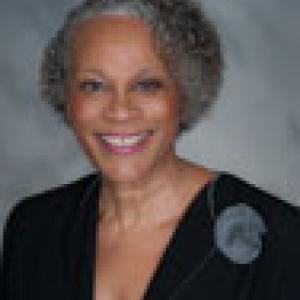Equity, Justice and Generativity in Education Research for Quality Teaching and Learning
As society's problems become increasingly complex, the world needs a different kind of educational researcher to address its thorniest problems and to plot a course for educating a new generation of global thinkers, equipped with the knowledge and skills to address today's complex challenges. In this talk, Dr. Ball draws on recent research and her Model of Generative Change to share lessons learned about practices needed to engage learners across cultures; principles that guide how we teach; and paradigms to contemplate when restructuring for students who offer creative solutions and teachers who are generative thinking pedagogical problem solvers.
Arnetha F. Ball is a Professor in the Graduate School of Education at Stanford University in the Curriculum Studies, Teacher Education, and the Race, Inequality and Language Programs. She is CoDirector of Stanford’s Center for Race, Ethnicity and Language, Past-Director of the Program in African and African American Studies; 2011-2012 President of the American Educational Research Association; and the past U.S. Representative to the World Educational Research Association. Before entering the professorate, she taught in pre-school, elementary, and secondary classrooms for over 25 years and was the founder and Executive Director of "Children’s Creative Workshop," an early education center that specialized in providing premiere educational experiences for students from diverse backgrounds. Her research is designed to advance sociocultural theory through studies that integrate sociolinguistic, discourse analytic and ethnographic approaches to investigate ways in which semiotic systems in general, and oral and written language in particular, serve as a means for mediating teaching and learning in culturally and linguistically diverse settings. Her interdisciplinary program of research is conducted in complex learning environments that are faced with the challenge of improving education for diverse populations in three intersecting contexts: U.S. urban schools; community-based organizations that provide alternative education opportunities for academic success; and teacher education programs that prepare teachers to teach in culturally and linguistically complex classrooms across national boundaries. Her most recent work includes investigations of teacher professional development in the U.S., South Africa, Australia, and New Zealand and builds on her Model of Generative Change (2009), to propose new directions for preparing the next generation of teachers who possess the skills, dispositions and knowledge necessary to work successfully with historically marginalized and disenfranchised students across national boundaries. Winner of the AERA Palmer O. Johnson Award and author/co-editor of six books and numerous articles, Ball was Vice President of AERA’s largest division [Division K, Teaching and Teacher Education] and has served as an Academic Specialist for the United States Information Services Program in South Africa. She is a Fellow of the American Educational Research Association, a 2014/15 Faculty Research Fellow at the Clayman Institute for Gender Research at Stanford University, 2014 Visiting Scholar at the Queensland University of Technology, 2015 & 2016 Visiting Scholar at the University of Auckland, and served as the Inaugural Barbara A. Sizemore Distinguished Visiting Professor in Urban Education.

